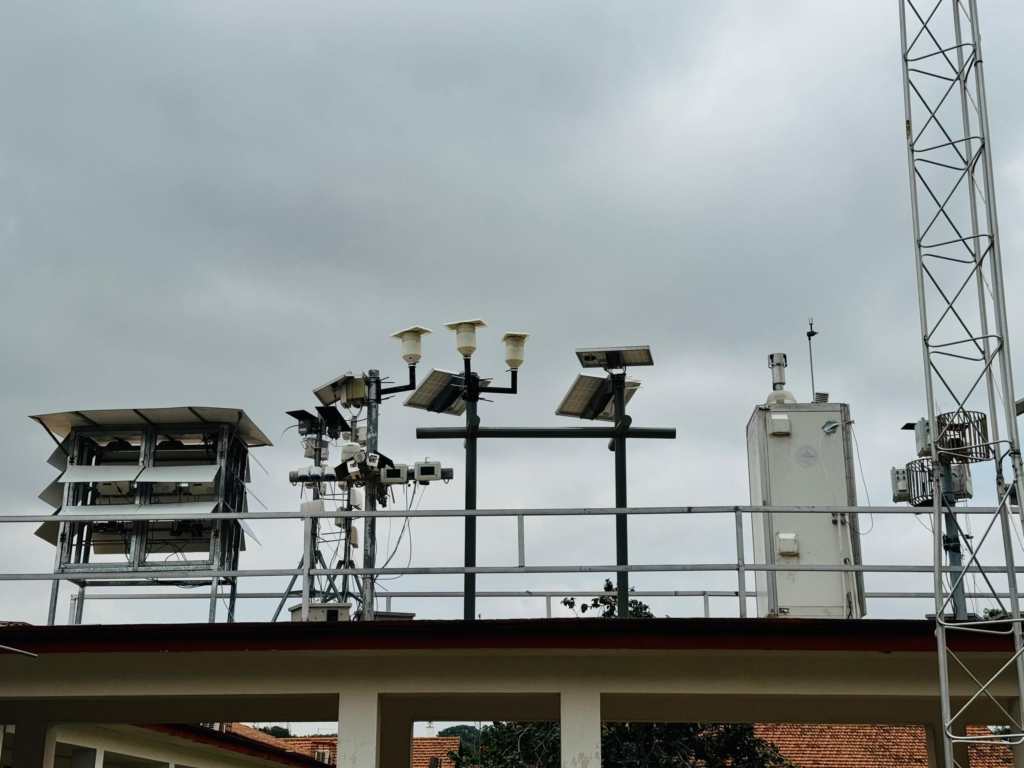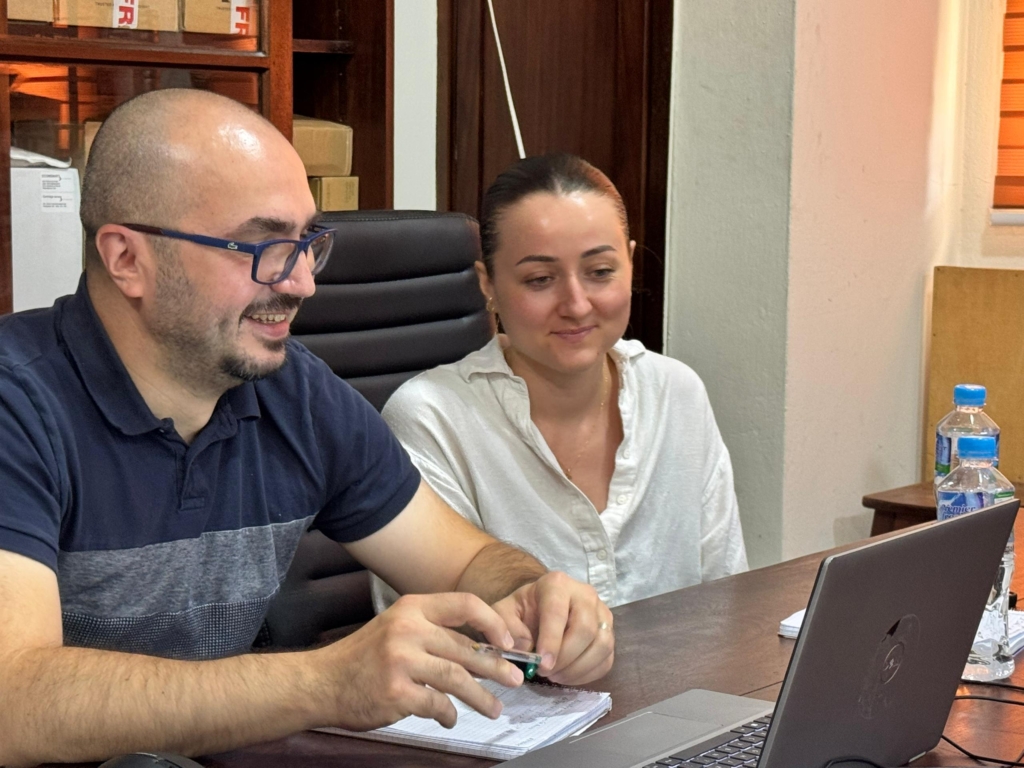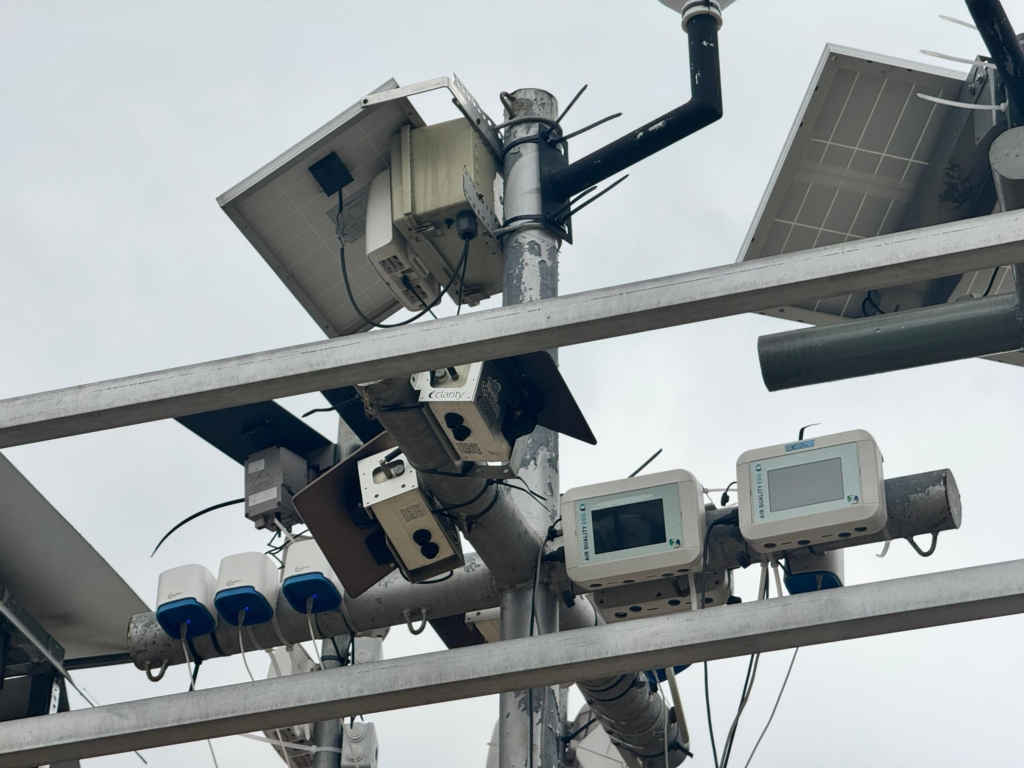
The fifth edition of the AirLab Microsensors Challenge has officially commenced, with outdoor evaluation sites in Paris (France), Accra (Ghana), and Bengaluru (India).
For the first time, Africa is also hosting the globally respected program, with the University of Ghana’s Afri-SET serving as the regional hub.
This year’s edition brings together 32 manufacturers, submitting nearly 50 sensor devices for independent testing.
“The objective of the challenge is to provide users and potential users of this type of system, so micro sensor-based systems, with independent information on the performance of the sensors,” said Dr. Adrian Arfire, Engineer in the Meteorology and Innovation Service at AirParif.

“There are not so many sensors that are actually certified by a third party. This has to do with costs, it’s quite expensive to get the certification, and as such there is no objective independent information that is available to the general public as to how well the systems perform.”
Air pollution has been described as the world’s greatest external risk to human health. In 2021 alone, global studies estimated it caused 8.1 million deaths—surpassing smoking, alcohol use, traffic injuries, and HIV/AIDS. In Ghana, the WHO attributed 28,000 deaths in 2019 to air pollution—more than malaria, HIV, and tuberculosis combined.
“You cannot really tackle a problem unless you can actually get the right information about the extent of the problem. So you need to be able to measure the air quality in order to take any sort of action to improve it. Our mission is to inform decision makers,” Dr. Arfire said.
For Ghana, hosting the first outdoor evaluation site on the continent is being hailed as a breakthrough moment.
Dr. Allison Felix Hughes, Facility Manager of Afri-SET West at the University of Ghana, said Ghana’s environment makes the testing uniquely valuable.

“For the first time, manufacturers will see how their devices perform here. Our environment is distinct—especially with natural phenomena like the Harmattan dust. Testing in Accra allows manufacturers to refine their algorithms, and ultimately users will have access to better sensors.”
Two African companies are participating—Crafted Climate from Ghana and another from Kenya. Crafted Climate’s devices will only be tested in Accra.
“we have one participant from Ghana. Crafted Climate. And so for their sensors, it is only in Ghana that we are going to evaluate them. They did not send to India and also to France. It allows us to have manufacturers who have not had their sensors brought to the sub-region to, for the first time, have these sensors evaluated.”
Key changes in the 5th edition include:
Three new outdoor evaluation sites: France (Paris), Ghana (Accra), and India (Bangalore).
New confined-space evaluation site: An underground railway station in Paris, in partnership with Île-de-France Mobilités and SNCF Gares & Connexions.
Updated Rules & Protocols: Including new performance metrics, streamlined utility criteria, and a focus on environmental footprint as a macro evaluation criterion.
Colocation calibration allowed, with a one-month result validation period for transparency and fairness. Registration fees apply only to indoor evaluations, except for the underground station (IA-URS).

This 2025 edition will focus on key pollutants including particulate matter, nitrogen oxides (NOx), ozone (O₃), and sulphur dioxide (SO₂). For manufacturers, this is an unparalleled opportunity to test their sensors in West African environments that include complex air pollution sources and unique atmospheric conditions such as the Harmattan dust, providing rich data and critical performance benchmarks.
The deployment phase begins mid-September and will run for about four months, after which the sensors will be ranked on performance. Unlike past editions, the 2025 Challenge will also assess ease of use, cost, and environmental impact, making it the most comprehensive review yet.